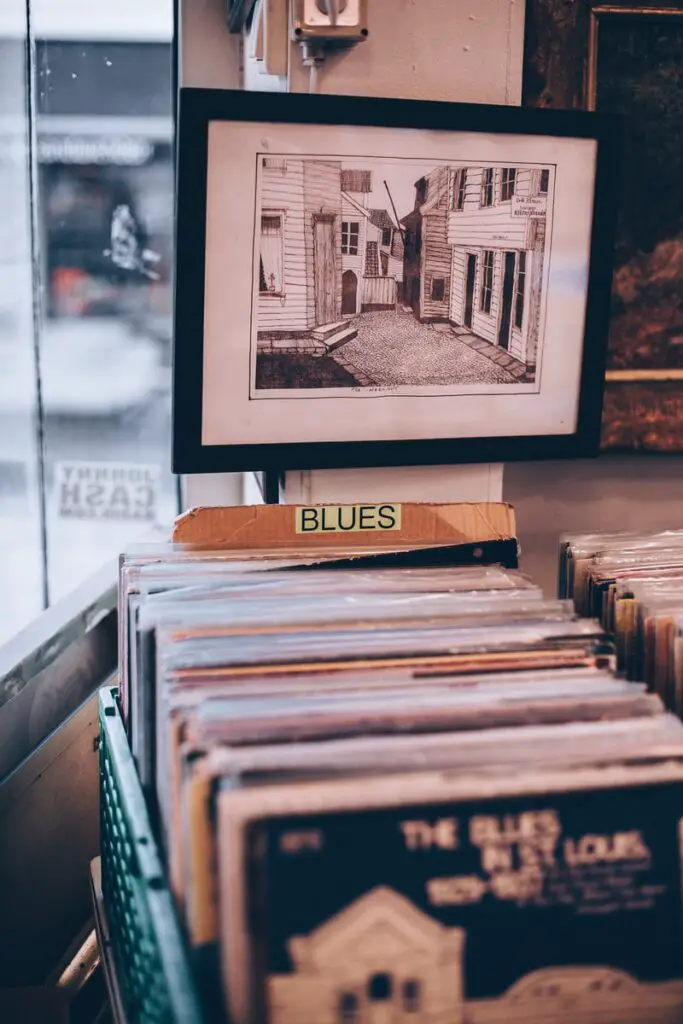
Let’s be honest—any music ranking article that claims to list “the best” songs in every genre is less of an objective display of musical talent and more a window to the writer’s personal taste.
But you already knew that. From my perspective, these songs are worthy of receiving the title of “the best” acoustic blues songs, mainly because they have something that makes them stand out from the rest.
Be it a heartfelt composition, profound lyrics, clever arrangements or unique meanings, the following fifteen songs have something that no other song has. Take a look at the tracks I consider the best the acoustic blues genre has to offer.
With that said… here are The 15 Best Acoustic Blues Songs of All Time:
Nobody Knows You When You’re Down and Out – Eric Clapton.
A stand-out track in an album that itself stands out, Nobody Knows You When You’re Down and Out is not an original song penned by Eric Clapton. It is, instead, a Vaudeville-blues classic written and composed for piano by Jimmie Cox back in 1923.
Before Clapton, the song enjoyed enormous success with the recording of Bessie Smith, who popularized it during the Prohibition era and made it her own throughout the decades to follow. Her version is just as deserving of this spot on the list.
Clapton’s version came to be many times on live performances before getting a surge in popularity through his MTV Unplugged setlist. The song had a special place in his heart, as it was one of the first fingerpicking songs the artist learned to play.
Don’t Ease Me In – Grateful Dead.
Released as a single in 1966 and re-recorded for the 1980 album Go To Heaven, Don’t Ease Me In is a quintessential blues rock song often overlooked amongst the impressive discography Grateful Dead has pumped out.
In my opinion, it is a song that has it all. The somewhat raunchy lyrics are sung with exceptional charm and energy, the characteristic harmonies are flawless, and the guitar is simply exquisite.
The coup de grâce? The guitar solo in the track’s last third is nothing sort of enchanting.
How Long Blues – Eric Clapton.
How Long Blues is yet another blues standard masterpiece that appears on this list at the talented hands and vocals of Eric Clapton.
Titled initially How Long, How Long Blues, the song was written and performed by the exceptionally talented Leroy Carr and Scrapper Blackwell back in 1928, featuring aptly melancholic lyrics that compare a lover’s departure with that of a train.
Eric Clapton is just one of the many artists that made this song their own. In his case, he did so in 1994 under the umbrella of his blues cover album titled From The Cradle, which went on to win the Grammy for Best Traditional Blues Album.
Cross Road Blues – Robert Johnson.
Written and recorded by the unparalleled Robert Johnson in 1936, this song is the quintessential display of his characteristic Delta blues style and the profound influence he would go on to have over the genre as a whole.
Sadly, he saw little success during his life. Still, the recognition of his music extended well beyond—including some mythology about selling his soul to the devil at a crossroads, no doubt inspired by this song.
The track is now part of American iconography, and Eric Clapton and Cream’s rock take of the song brought it back to relevance in 1968.
Deep River Blues – Doc Watson.
Deep River Blues is undoubtedly one of Doc Watson’s most emblematic songs and a masterpiece of the acoustic blues genre since its release in 1976. However, many are unaware that despite his extraordinary performance, the song is not his own.
It is credited as a traditional song, and in fact, it derives from The Delmore Brothers’ I’ve Got The Big River Blues, itself first released in 1933.
Regardless of its origins, Deep River Blues is an excellent acoustic blues track, and Doc Watson’s charming vocals and enchanting guitar skills elevate it to the next level.
Hey Hey – Eric Clapton.
It should be no surprise to anyone that Eric Clapton has a third mention in this article. This time I went back to his legendary Unplugged album and chose another cover of a classic blues track.
Hey Hey—sometimes called Hey Hey Baby—is a song initially penned and popularized by Big Bill Broonzy, one of the pioneers of the American folk music revival and one of the most exceptional blues musicians of the past century.
Eric Clapton cites Broonzy as one of his inspirations and role models, and his take on Hey Hey showcases it. His skill with the guitar is nothing short of enchanting, and it stands out as one of the best tracks of an already spectacular album.
Make Me a Pallet On Your Floor – Mississippi John Hurt.
Make Me a Pallet on your Floor is a composition that goes by many names and has had many different versions. It is a traditional tune with uncertain origins, probably dating back to the 19th century.
Each interpretation of this standard is worth listening to, but I want to highlight the one released by Mississippi John Hurt in 1928. Perhaps due to the Great Depression looming, his recording was a failure, and it was only decades later that it would be rediscovered and appreciated.
The song is mellow and soft-spoken—much like the man himself. It is truly a delight.
Freight Train – Elizabeth Cotten.
The self-taught Cotten penned this now-ubiquitous tune as a very young teenager in the early 1900s and sang it to eventual folk singer Peggy Seeger as she babysitted the child.
Seeger took the song with herself to England, and it gained widespread popularity, upon which Paul James and Fred Williams tried to register the song as their personal composition. It took Seeger many years of effort, but eventually, Cotten acquired the rights to her song.
As played by Cotten, Freight Train is a sight to behold—she commands it with her emblematic Cotten Style: flipping the guitar to pick with her left and fret with her right.
Slidin’ Delta – Doc & Merle Watson.
Originally recorded by Mississippi John in 1928, Sliding Delta did not see the light of day after being discarded by his record label. Only decades later, in the 1960s, Mississippi John’s newfound success allowed him to record the song once again.
However, the version featured in this list is the 1984 cover performed by the also-legendary Doc & Merle Watson, a performance that is more up-tempo than the characteristically mellow original track. It is an excellent song that showcases the blurring line between blues and bluegrass.
Going Down the Road Feeling Bad – Woody Guthrie.
Like many other entries in the list, Going Down The Road Feeling Bad—also known as Lonesome Road Blues—is a traditional American folk song with muddy origins shrouded in mystery. The first known recording dates back to 1923, but its true composition is much older than that.
The tune’s simple E-A chord progression is straightforward yet catchy and instantly recognizable. Many legendary artists from different backgrounds have played this tune, but I want to highlight Woody Guthrie’s 1964 version, as it is often considered the most influential of them all.
Hear My Train A Comin’ – Jimi Hendrix.
Jimi Hendrix was not only an electric guitar virtuoso. His legendary skills translated to acoustic sounds just as well, and the acoustic version of Hear My Train A Comin’ showcases it to near blissful perfection.
Written by Hendrix himself, he was never truly satisfied with any recording of the song, yet the acoustic version recorded in the 1968 Experience documentary went on to become one of his most emblematic performances.
There is nothing left to say—it is simply artistry.
Hellhound on My Trail – Robert Johnson.
Robert Johnson’s second entry on this list, Hellhound on My Trail, is perhaps the closest thing he has to a signature song and one of his most renowned tracks. It displays his talent as a songwriter, guitar player, and vocalist—he does all three with impeccable grace.
The song has an open Em guitar tuning and displays dark lyrics that portray the usual traveling musician trope found in blues tunes, with the addition of the certainty of inescapable doom lurking nearby.
Although the lyrics most certainly are metaphorical in nature, there is no shortage of people that believe them to be literal—a confirmation that Johnson had a suspicious supernatural deal to worry about.
I Can’t Be Satisfied – Muddy Waters.
Written and recorded for the first time in 1941 and eventually released in 1948, I Can’t Be Satisfied is one of the many influential Muddy Waters songs from the post-war blues scene.
Waters himself wrote the song, yet it displayed notorious influences derived from common folk and traditional songs of the era. Despite being recorded as an acoustic blues song, its subsequent performances with the electric guitar helped solidify the development of electric blues.
Steel Rail Blues – Gordon Lightfoot.
Gordon Lightfoot is the only Canadian on this list. As one of the living legends of the folk and blues genre, helping define many of the conventions that are considered staples nowadays.
His song Steel Rail Blues was the first track on Side 2 of his debut album Lightfoot! released in 1966, and although it did not reach tremendous success on its own, it has been retroactively deemed as an overlooked acoustic blues masterpiece.
Blue Railroad Train – Doc Watson.
Doc Watson’s third entry on the list is none other than Blue Railroad Train, a song originally released in 1934 by the influential and legendary Delmore Brothers, Alton and Rabon.
Over thirty years after the original’s, Doc Watson’s version of the song was published in his 1966 album Southbound, featuring his vocals and guitar skills alongside those of his son Merle. The result is a mesmerizing track that, despite being a cover, stands on his own as an influential acoustic blues masterpiece.
